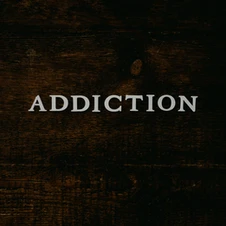Ah, coffee—the magical elixir that has fueled countless individuals for centuries. Whether you’re a devoted coffee lover or simply rely on it to get through the daily grind, chances are you’ve wondered about its effects on your health and well-being. In this blog post, we’ll delve into the most current scientific research to uncover the good, the bad, and yes, even the ugly side of our beloved beverage.
The Good: The Perks of a Caffeinated Cup of Coffee
- Boosts Cognitive Function: One of the most celebrated benefits of coffee is its ability to enhance cognitive function. Caffeine, the primary active ingredient in coffee, acts as a stimulant, increasing alertness and improving attention and focus. Studies have shown that moderate coffee consumption can enhance cognitive performance, particularly in tasks requiring sustained attention and memory recall [1].
- Physical Performance: If you’re an active individual, coffee might be a valuable ally. Caffeine has been found to improve physical performance by increasing adrenaline levels, which can lead to improved endurance and reduced perception of effort during exercise [2]. However, this approach is not ideal for everyone, so make sure to consult your medical provider prior to consuming caffeine before exercise.
- Antioxidant Powerhouse: Coffee is a rich source of antioxidants, which play a crucial role in neutralizing harmful free radicals in the body. Antioxidants help protect our cells from damage and have been associated with a reduced risk of chronic diseases, such as heart disease and certain types of cancer [3].
The Bad: Potential Downsides of Coffee Consumption



- Insomnia and Sleep Disruption: Caffeine’s stimulating effects can linger in the body for hours, making it harder to fall asleep and disrupting the overall quality of sleep. Regular consumption, especially in the late afternoon or evening, may lead to insomnia and sleep disturbances [4].
- Gastrointestinal Issues: For some individuals, coffee can be harsh on the digestive system, causing heartburn, acid reflux, and an increase in bowel movements. If you experience these issues, consider reducing your coffee intake, opt for low-acid coffee varieties (such as dark roasts), try cold brew coffee, or have your coffee with food [5].
- Addiction and Withdrawal: Caffeine is mildly addictive, and regular consumption can lead to dependence. Sudden cessation of coffee intake can trigger withdrawal symptoms like headaches, irritability, and fatigue [6].
The Ugly: Coffee and Cortisol

Cortisol, often referred to as the “stress hormone,” plays a crucial role in the body’s stress response. Some studies have suggested that coffee consumption might lead to an increase in cortisol levels, which, in turn, could impact blood sugar levels. However, the evidence on this topic is inconclusive and conflicting.
Some research indicates that caffeine can cause a short-term increase in cortisol levels, leading to a temporary rise in blood sugar. However, long-term coffee consumption doesn’t appear to have a significant impact on blood sugar levels in healthy individuals [7]. Nevertheless, if you have concerns about blood sugar regulation, it’s essential to monitor your own body’s response and consult with a healthcare professional.
Energy Boost or Fatigue? It Depends!
The effect of coffee on energy levels can vary from person to person. As a stimulant, coffee can indeed increase alertness and perceived energy levels, which is why many turn to it for a morning pick-me-up or during periods of fatigue.
However, there’s a catch. Regular coffee drinkers can develop a tolerance to caffeine over time, meaning that the initial stimulating effects might diminish with habitual consumption. In such cases, relying on coffee to combat tiredness may become less effective. Additionally, as mentioned earlier, excessive coffee consumption or drinking it too late in the day can disrupt sleep patterns, leading to fatigue the following day.
In Conclusion
Coffee is undoubtedly has both benefits and drawbacks. Moderation is key, and individual responses to coffee can vary widely. For many, enjoying a cup or two a day can provide a pleasurable and beneficial experience. However, if you find that coffee negatively impacts your sleep or exacerbates certain health issues, it may be worth exploring alternatives, dinking decaf coffee, or adjusting your intake.
Remember, the key to a healthy relationship with coffee is balance and self-awareness. Savor the flavor, embrace the perks, but always listen to your body’s cues.
References:
- Nehlig, A. (2010). Is Caffeine a Cognitive Enhancer?. Journal of Alzheimer’s Disease, 20(s1), S85-S94.
- Grgic, J., Grgic, I., Pickering, C., Schoenfeld, B. J., Bishop, D. J., & Pedisic, Z. (2020). Caffeine Supplementation for Powerlifting Competitions: An Evidence-Based Approach. Journal of Human Kinetics, 74(1), 233-241.
- Natella, F., & Scaccini, C. (2016). Role of Coffee in Modulating Diabetes Risk. Nutrients, 8(12), 1-16.
- Clark, I., & Landolt, H. P. (2017). Coffee, Caffeine, and Sleep: A Systematic Review of Epidemiological Studies and Randomized Controlled Trials. Sleep Medicine Reviews, 31, 70-78.
- Schindler, A., & Liebregts, T. (2016). Coffee and Gastrointestinal Function: Facts and Fiction. A Review. Journal of Gastroenterology and Hepatology, 31(10), 1316-1321.
- Juliano, L. M., & Griffiths, R. R. (2004). A Critical Review of Caffeine Withdrawal: Empirical Validation of Symptoms and Signs, Incidence, Severity, and Associated Features. Psychopharmacology, 176(1),1-29.
- Lane, J. D., Adcock, R. A., & Williams, R. B. (1990). Caffeine Effects on Cardiovascular and Neuroendocrine Responses to Acute Psychosocial Stress and Their Relationship to Level of Habitual Caffeine Consumption. Psychosomatic Medicine, 52(3), 320-336.
Disclaimer: Information in this article is for educational or information purposes only and should not be considered a substitute for professional medical advice or consultation with healthcare professionals. Elevate Functional Nutrition LLC does not offer medical advice and assumes no responsibility or liability for the information contained in this post. Always consult a medical professional or other qualified health care provider for medical advice, diagnoses, or treatment.


